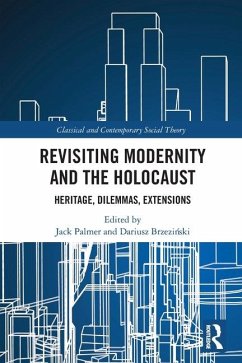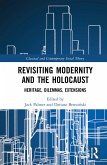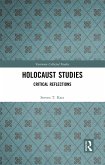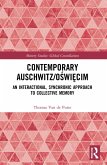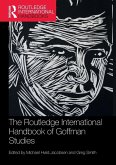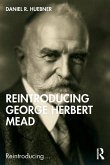Zygmunt Bauman's Modernity and the Holocaust is a decisive text of intellectual reflection after Auschwitz, in which Bauman rejected the idea that the Holocaust represented the polar opposite of modernity and saw it instead as its dark potentiality. Bringing together leading scholars from across disciplines, this volume offers the first set of focused and critical commentaries on this classic work of social theory, evaluating its ongoing contribution to scholarship in the social sciences and humanities. Addressing the core messages of Modernity and the Holocaust that continue to sound amidst the convulsions of the present, the chapters situate Bauman's volume in the social, cultural and academic context of its genesis, and considers its role in the complex processes of Holocaust memorialisation. Offering extensions of Bauman's thesis to lesser-known and undertheorised events of mass violence, and also considering the significance of Janina Bauman's writings in their own right, this volume will appeal to scholars of sociology, intellectual history, Holocaust and genocide studies, moral philosophy, memory studies and cultural theory.
'Revisiting Modernity and the Holocaust is an essential and timely contribution both to contemporary debates and to the understanding of the development of Bauman's thinking. Now, five years after his death, and in a context where there is growing critical appraisal of his work (as well as recent antisemitic attacks against him in Poland) these essays offer new and fascinating ways to look back at a key moment in Bauman's intellectual trajectory.' - Janet Wolff, University of Manchester, UK
'Revisiting Modernity and the Holocaust is an essential contribution both to contemporary debates on the Holocaust and to the understanding of Bauman's thinking.' - Anca Balan, Holocaust. Studii si cercetari
'The book is not an uncritical celebration of Bauman as a major European social thinker or an uncritical celebration of Modernity and the Holocaust as a masterpiece and his crowning achievement. The chapters in the book give the reader detailed, informed and often critical evaluation of Bauman's work on the Holocaust including regarding the motivation of perpetrators and victims, the role of the Judenräte and the Sonderkommandos and their 'co-operation', their agency, proximity and face to face cruelty particularly against women.' - Shaun Best, Sociology
'With a new potentially genocidal war at the centre of Europe, Zygmunt Bauman's warnings in Modernity and the Holocaust that this could happen again are chillingly borne out.' - William Outhwaite, Studia Litteraria et Historica
'A useful measure of the state of affairs with reference to Modernity and the Holocaust today is offered by Jack Palmer and Dariusz Brzezinski's new volume. (...) It is a volume that will become a standard reference in itself.' - Peter Beilharz, Studia Litteraria et Historica
'Revisiting Modernity and the Holocaust is an essential contribution both to contemporary debates on the Holocaust and to the understanding of Bauman's thinking.' - Anca Balan, Holocaust. Studii si cercetari
'The book is not an uncritical celebration of Bauman as a major European social thinker or an uncritical celebration of Modernity and the Holocaust as a masterpiece and his crowning achievement. The chapters in the book give the reader detailed, informed and often critical evaluation of Bauman's work on the Holocaust including regarding the motivation of perpetrators and victims, the role of the Judenräte and the Sonderkommandos and their 'co-operation', their agency, proximity and face to face cruelty particularly against women.' - Shaun Best, Sociology
'With a new potentially genocidal war at the centre of Europe, Zygmunt Bauman's warnings in Modernity and the Holocaust that this could happen again are chillingly borne out.' - William Outhwaite, Studia Litteraria et Historica
'A useful measure of the state of affairs with reference to Modernity and the Holocaust today is offered by Jack Palmer and Dariusz Brzezinski's new volume. (...) It is a volume that will become a standard reference in itself.' - Peter Beilharz, Studia Litteraria et Historica

